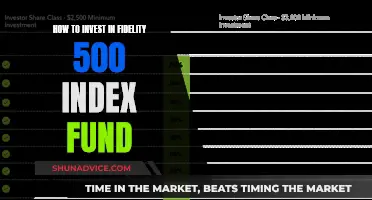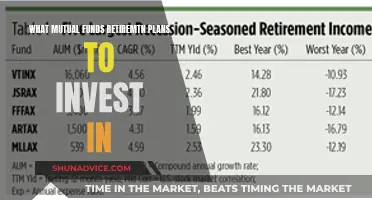
If you're looking for a semi-short-term investment option for your house fund, there are a few different options to consider. Here are some of the most common and best short-term investment vehicles:
- High-yield savings accounts: These accounts offer higher interest rates than traditional savings accounts and provide easy access to your money. They are also FDIC-insured, protecting your funds up to $250,000.
- Money market accounts: Money market accounts typically offer higher returns than savings accounts and provide features like check-writing and ATM access. They are also FDIC-insured.
- Certificates of Deposit (CDs): CDs are a type of deposit account that offers a fixed interest rate for a specified period, usually ranging from three months to five years. They are FDIC-insured and can be a good option if you don't need immediate access to your funds.
- Short-term bond funds: Bond funds, particularly those that invest in government and municipal bonds, can offer relatively low risk and stable returns for short-term investments.
- Government bonds and Treasury bills: These are considered safe and low-risk investments, backed by the full faith and credit of the government. They are also highly liquid, allowing you to buy and sell easily.
When choosing a short-term investment option, it's important to consider your risk tolerance, time horizon, and financial goals. It's also crucial to remember that short-term investments typically offer lower returns than long-term investments but provide more flexibility and liquidity.
| Characteristics | Values |
|---|---|
| Type | High-yield savings accounts, Money market accounts, Cash management accounts, Short-term bond funds, Bank certificates of deposit, Government bonds, Treasury bills, Peer-to-peer lending, Roth IRAs |
| Time frame | Less than 2 years, 2-3 years, 3-5 years |
| Risk level | Low, Medium, Medium-high |
| Returns | 4% to 5% |
What You'll Learn

High-yield savings accounts
- High-yield savings accounts are offered by online banks and credit unions, which generally don't have the same expenses as traditional banks and can therefore offer better rates.
- These accounts are FDIC-insured or NCUA-insured, depending on whether you bank with a bank or a credit union, so your money will be safe up to certain limits.
- The interest rates on high-yield savings accounts are variable and can change at any time, so keep an eye on the market and be prepared for fluctuations.
- High-yield savings accounts typically have low or no monthly fees and minimum balance requirements, making them a low-risk option.
- While these accounts provide easy access to your cash, there may be limits on the number of withdrawals you can make each month without incurring a fee.
- When choosing a high-yield savings account, consider the interest rate, fees, minimum deposit and balance requirements, and customer service.
- Some high-yield savings accounts offer additional perks such as ATM access, budgeting tools, and savings goals.
Maximizing Your HSA Funds: Smart Investment Strategies
You may want to see also

Money market accounts
When choosing a money market account, be sure to find one that is FDIC-insured to protect your account from losing money. Additionally, look for accounts with competitive interest rates and consider the minimum investment requirements. It's also important to understand the restrictions on withdrawals and any associated fees or charges.
Transamerica 401k: Where to Invest Your Funds Wisely
You may want to see also

Short-term bond funds
SPDR Portfolio Short-Term Corporate Bond ETF (SPSB)
This fund offers exposure to U.S. corporate bonds with maturities between one and three years. It has a low expense ratio of 0.04% and a SEC yield of 4.33%.
IShares 1-5 Year Investment Grade Corporate Bond ETF (IGSB)
The iShares fund holds investment-grade corporate bonds with maturities between one and five years. Its expense ratio is 0.04%, and it has a SEC yield of 4.38%.
Schwab 1-5 Year Corporate Bond ETF (SCHJ)
The Schwab ETF seeks to track the performance of the short-term U.S. corporate bond market. It has a low expense ratio of 0.03% and a SEC yield of 4.34%.
Vanguard Short-Term Bond ETF (BSV)
The Vanguard ETF aims to track a market-weighted bond index of investment-grade bonds with maturities of 1-5 years. It has a low expense ratio of 0.04% and a SEC yield of 3.84%.
Fidelity Short-Term Bond Fund (FSHBX)
The Fidelity fund aims to produce a high level of current income while preserving capital. It typically invests in investment-grade debt with maturities of three years or less. Its expense ratio is 0.30%, and it has a SEC yield of 4.23%.
While short-term bond funds are safer than investing in high-yield bonds or the stock market, they are not risk-free. Investors seeking even lower risk might consider money-market funds.
Investing Funds: Where to Start for Maximum Returns
You may want to see also

Bank certificates of deposit (CDs)
CDs are considered to be one of the safest savings options. A CD bought through a federally insured bank is insured up to $250,000. The $250,000 insurance covers all accounts in your name at the same bank, not each CD or account you have at the bank.
CDs offer a fixed interest rate over a fixed period, also known as a CD term. You can't access your funds until the CD term ends. At the end of the term, you receive your original deposit plus the accrued interest you earned.
CDs are a good option for those looking for a safe, short-term investment. They are ideal for those who want to save money that they won't need in the near term. The longer the CD term, the higher the interest rate you can earn.
When choosing a CD, consider how long you want to keep your money locked up. Pick a CD with a term that fits your time frame and offers a competitive interest rate. It's important to compare CDs with similar terms and consider the minimum deposit and any early withdrawal penalties and fees.
No-penalty CDs are also available and let you dodge the typical fee that a bank charges if you cancel your CD before it matures. This type of CD may be attractive in a period of rising interest rates since you can withdraw your money without a penalty and then deposit it elsewhere for a higher return.
Overall, CDs are a safe and reliable option for short-term investments, offering fixed interest rates and the security of federal insurance.
Real Estate Fund Investing: What You Need to Know
You may want to see also

Government bonds
In the US, government bonds can be purchased through a broker, bank, or the TreasuryDirect website. Municipal bonds, issued by local governments, can be purchased from a broker.
Dividend Funds: When to Invest for Maximum Returns
You may want to see also
Frequently asked questions
Some good short-term investment options include high-yield savings accounts, money market accounts, cash management accounts, short-term corporate bond funds, and short-term U.S. government bond funds.
Short-term investments offer stability, low risk, liquidity, and diversification. They are also highly liquid, which means that you can quickly convert them to cash if needed.
Short-term investments are typically held for less than three to five years, while long-term investments are designed to be held for a longer period, usually at least a year. Short-term investments are often less risky and more stable, while long-term investments may offer higher returns but also come with higher volatility.
When choosing a short-term investment for your house fund, consider factors such as the time horizon, risk tolerance, investment goals, and liquidity needs. It is important to assess your financial situation and determine how much risk you are comfortable with. Diversification is also key to managing risk and maximizing returns.
Some specific short-term investment options for your house fund include certificates of deposit (CDs), government bonds, Treasury bills, and bond funds. You can also consider investing in a Real Estate Investment Trust (REIT) or paying off any existing debt with a high interest rate.







